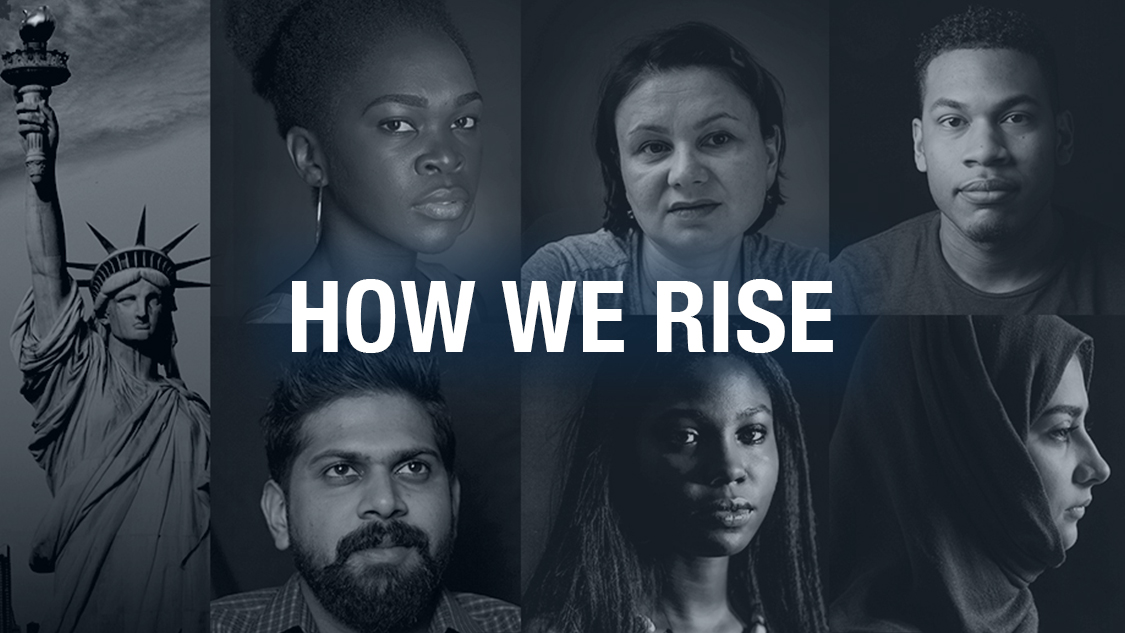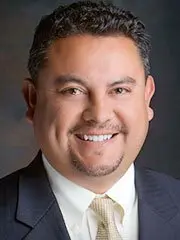The recently released PRRI/Brookings Christian Nationalism Survey of over 6,000 Americans makes clear that Christian nationalism is a growing threat in this country, as 1 in 10 Americans are defined as adherents to Christian nationalism according to the study’s multi-dimensional measurement scale. With another 19% who are supportive of multiple aspects of Christian nationalism (defined as sympathizers), Christian nationalism values are becoming engrained in mainstream culture.
The new Christian nationalism survey makes clear that there is an underlying ideology of racism among the Christian nationalist movement that connects them to white nationalist groups who rely on old and new tropes to promote white supremacy. Americans who are supportive of Christian nationalism generally hold less favorable views of immigrants, racial and ethnic minorities, and are less likely to believe that racism remains a problem in American society. Among other findings, roughly 65% of white Christian nationalism sympathizers and adherents disagree that white supremacy is still a major problem in the U.S. today, twice as high as Americans overall in the survey. Similarly, 66% of white Christian nationalism sympathizers and 81% of adherents believe in replacement theory, the view that immigrants are “invading our country and replacing our cultural and ethnic background.”
Extremism and violence remain tools white supremacists employ to prevent social progress and any social programs that may enhance the quality of life for communities of color. The increased of violence raises the threat level to American democracy as we know it. In fact, the PRRI/Brookings Christian Nationalism Survey found that 16% of Americans agree with the statement “Because things have gotten so far off track, true American patriots may have to resort to violence in order to save our country.” Given social desirability challenges that likely increase the likelihood of disagreement among respondents, this is a high percentage of the public who support political violence. A much higher 40% of Christian nationalism adherents agree with this statement about patriots resorting to violence to save our country. This social acceptance of violence and the patriot-identity many Christian nationalist are taking on reflect two historical moments. The first, suggests Christian nationalists want to mirror the spread of Christianity through holy wars. The second moment suggests that Christian nationalists want to use violence to intimidate Black communities and other communities of color similar to tactics used during the Jim Crow Era and to interfere with the Modern Civil Rights Movement.
“Extremism and violence remain tools white supremacists employ to prevent social progress and any social programs that may enhance the quality of life for communities of color.”
Recent examples of the dangers of white supremacy include a racially charged plot to attack the Baltimore Powergrid. More directly tied to politics, the rise of armed Oath Keepers at polling locations has emerged as a new voter intimidation tactic. Far-right extremists have threatened officials and legislators with armed “stop the steal” protests. With a growing number of Americans willing to accept violence as a means of political expression, communities of color and religious minorities are increasingly vulnerable.
The 2022 Midterm Voter Election Poll, conducted by the African American Research Collaborative (AARC), asked a large sample of voters about their priorities for Congress and views regarding white nationalism. Black respondents in this survey are the most worried across the board about the risk of white nationalism, 73% of whom are worried about extreme Republicans and white nationalists promoting hate towards immigrants and minorities. Asian Americans are the next most concerned with white nationalism at 71%, followed by Latinos at 67%.
Reflecting the partisan nature of this issue, a majority (57%) of voters in the AARC poll are worried that “extreme Republicans and white nationalists are promoting hate and attacks against minorities and immigrants.” The PRRI/Brookings Christian Nationalism Survey also finds that there is a strong correlation between partisanship and nationalist views. Over half of Republicans qualify as either Christian nationalism sympathizers (33%) or adherents (21%), and Republicans (21%) are four times more likely as Democrats (5%) to be adherents of Christian nationalism.
In closing, the 2022 Midterm Voter Election Poll also highlights the lack of confidence voters have in elected officials’ ability to address white supremacy. Over 60% of Americans are worried “about elected officials who stay quiet and do not speak out against white nationalists.” African American (74%) and Native American (67%) voters are more worried about complacent elected officials than other racial and ethnic groups. These groups understand the current climate and historical significance of silence on race-related issues in the U.S. These groups also understand that silence may also indicate a form of compliance or even complicit behaviors when considering supporters of political campaigns.
The skepticism among voters regarding the ability of elected officials to address white nationalism is not surprising given the inability of Congress to get much done on this issue. The heavy pushback to Congresswoman Sheila Jackson-Lee’s push for congress to add more protection against hate crimes inspired by white supremacy is a great example of the obstacles facing federal Congressional action. We agree with our colleague’s suggestion that it will take policy change and structural reform to combat racial violence and white nationalism, and state level action such as Maryland’s Lt. Richard W. Collins III Law can be replicated in other states as a means of strengthening protections against hate crimes. New Mexico’s legislature is close to bringing a law to their Governor’s desk that would outlaw the carrying of guns at polling places, another commonsense policy that can help address voter intimidation. State laws on hate crimes vary with some encompassing all bias categories while others like Wyoming, South Carolina, and Arkansas don’t have any protections at all.
“White supremacy is alive and well in the U.S. and appears to be using violence and intimidation to shape a conservative political agenda.”
White supremacy is alive and well in the U.S. and appears to be using violence and intimidation to shape a conservative political agenda. The lasting effects of these strategies cause damage to our democracy. The ideology of white nationalism is now becoming intrinsically linked to Christian nationalism, and both are espousing that whiteness is being erased and attacked by activists and political leaders deemed to be on the far left. In order for whiteness supremacy to survive, violence and intimidation must become dominant strategies to prevent social progress and equitable access to education, job opportunities, and health resources. Communities of color are the primary targets of these strategies. The end goal is to maintain status quo policymaking, the privatization of public goods and services, and to render communities of color as invisible political change agents. We must continue to pay close attention to this threat to democracy and support federal and state-level policy efforts aimed at eradicating white nationalism and hate crime.
The survey data referenced herein was produced independently by a third-party firm, BSP Research on behalf of the African American Research Collaborative. Outside of his work at Brookings, Dr. Gabriel Sanchez serves as director of research for BSP Research and was part of the group of scholars who designed and implemented this survey.
The Brookings Institution is committed to quality, independence, and impact.
We are supported by a diverse array of funders. In line with our values and policies, each Brookings publication represents the sole views of its author(s).







Commentary
White nationalism remains major concern for voters of color
March 30, 2023